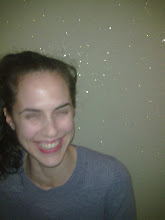While working on my piece, I found this rather long conversation with screenwriter Stuart Beattie, who wrote "Collateral". I'm not a fan of all his films, nor have I seen all of them, but I did find the interview very interesting, screenwriting-wise. Beattie was born in Sydney, Australia. He moved to Los Angeles at 21, first to study and later to work as a screenwriter, and he has lived there since. He wrote the first draft for "Collateral" when he was 19, in 1991. The movie was shot 13 years (and a few drafts) later. Here are some points he brings up:

About screenwriting
He usually thinks about a story for at least 6 months, refining the idea, and then it takes him 6-7 weeks to actually write it. The more he thinks about it before setting it on paper, it gets easier and quicker for him to write it.
When asked what he had learned throughout years of writing scripts and reading scripts, Beattie mentioned these two squeals:
- Starting a scene as late as possible and ending it as early as possible.
- Writing cinematic dialogues – short and light.
About Collateral
Beattie recorded a commentary for the "Collateral" DVD but it was edited out
He discusses the procedure of making scenes believable. The interviewer asks specifically about the credibility of scenes such as Max taking Vincent to visit his mother in the hospital. I personally had no problem with that scene's likeliness – I found that Vincent's back seat philosophical outbursts need much more explanation than that scene (and I think I managed to explain them, too).
About Hollywood
He explains about the writers' credits arbitration procedure in Hollywood, which involves sending all the different movie drafts to three anonymous readers who decide which writer deserves which credit. He also mentions no one is ever happy with the final decision.
For beginning writers, he recommends submitting your screenplay to screenwriting competitions as a way to get your name out there.
When asked if he ever feared that by letting others read his scripts, his ideas might get stolen, he simply answered no: you can't control that anyway, so there's no point worrying about that. A screenwriter's strategy, he says, should be to always have more than one script he's working on, more than one he's trying to sell, because you can't bet all your money on only one specific screenplay. That's too much pressure.
Read the full interview with Stuart Beattie at shootingpeople.org







No comments:
Post a Comment